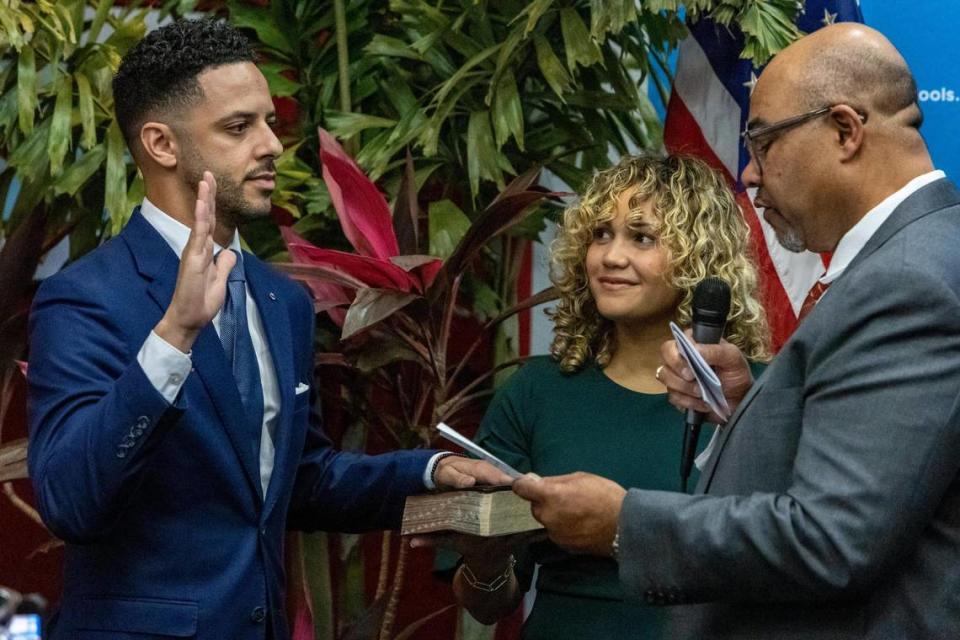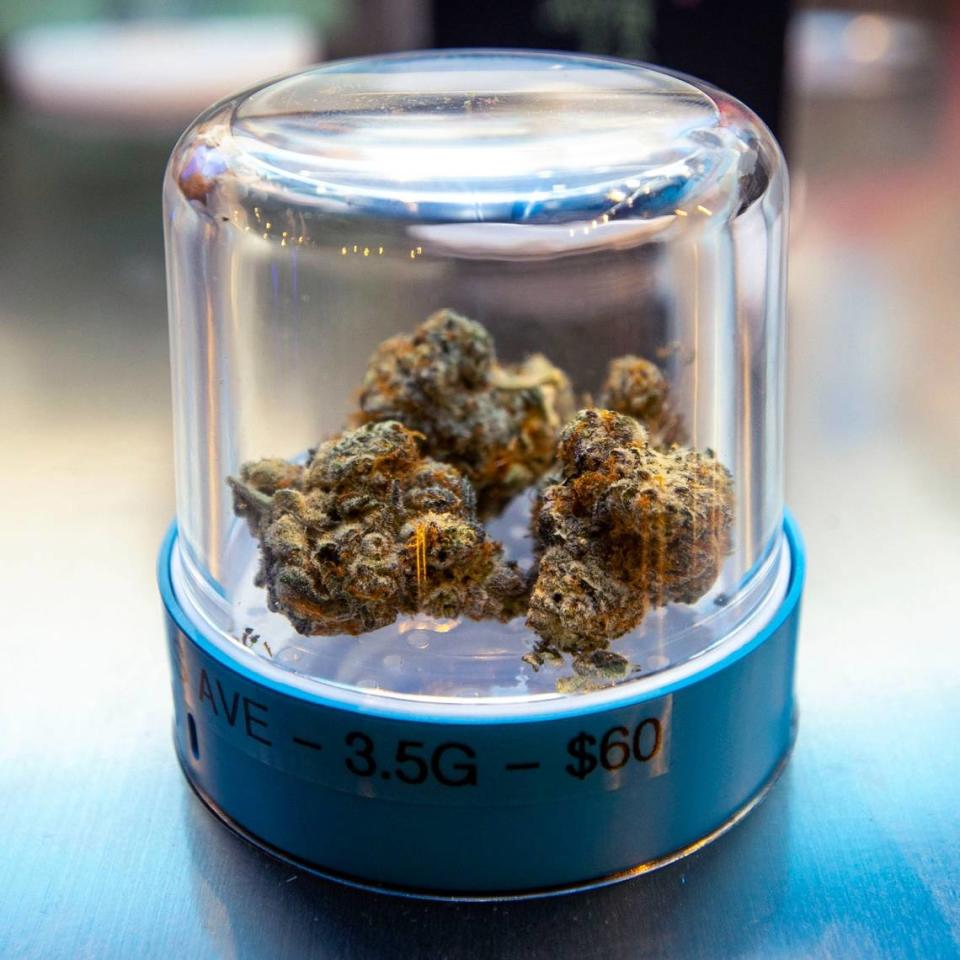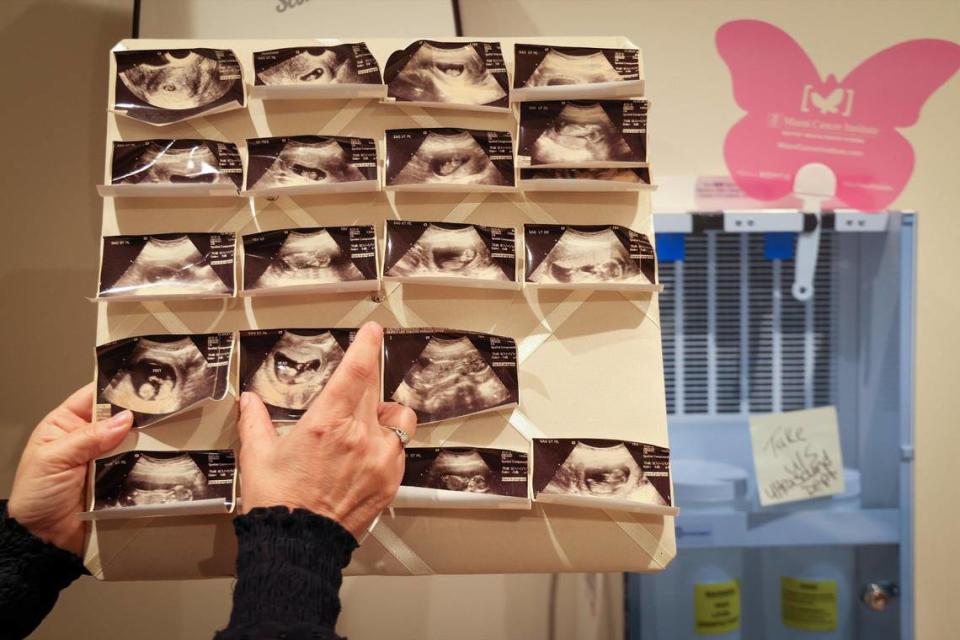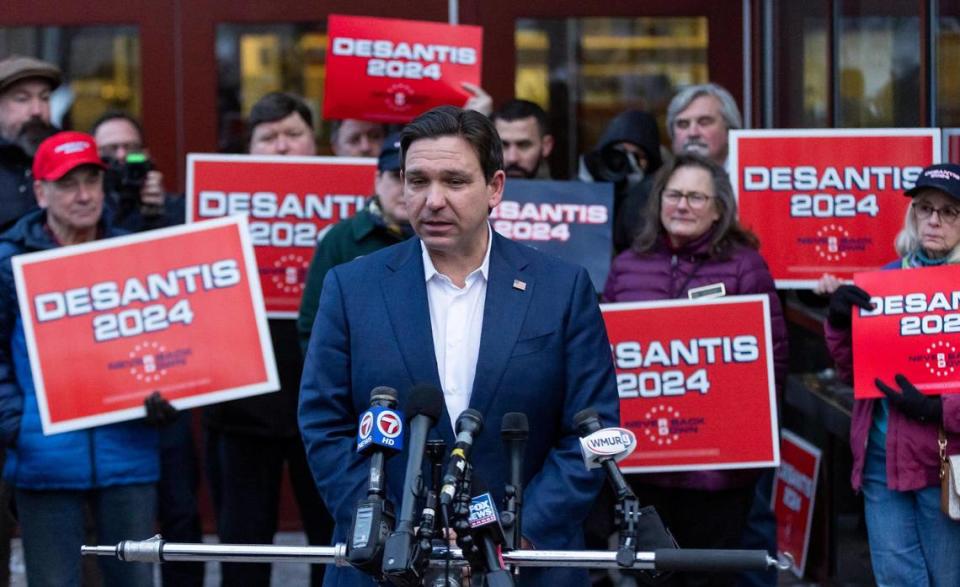What you need to know about the six constitutional amendments on Florida’s 2024 ballot
This year, Florida voters aren’t just deciding who they want to be president. They’re also choosing whether to amend the state constitution to protect their own property tax bills from inflation, stop candidates from receiving public money for political campaigns and legalize marijuana.
In all, six ballot initiatives will be presented to voters, each needing 60% support to pass.
Here’s a closer look at all of the amendments:
School Board Elections
Amendment 1 proposes that the state bring back partisan school board elections on or after November 2026.
Florida school board races have been non-partisan since voters passed an amendment in 1998 that required candidates to run without party labels. But lately, schools have been a political battleground in Florida, and lawmakers decided this winter to ask voters to once again identify school board candidates by their party affiliation.
Those who oppose the amendment fear that bringing back party labels to local school board elections will further politicize education. Amid his push to ban books and lessons related to critical race theory and other “woke” ideas in classrooms, Gov. Ron DeSantis has had a heavy hand in local school board races, backing more than 30 winning candidates in 2022.
Those in favor say it will create more transparency for voters.

Hunting and Fishing
Amendment 2 would establish hunting and fishing as a state constitutional right for Floridians.
The proposal aims to “preserve forever fishing and hunting, including by the use of traditional methods, as a public right and preferred means of responsibly managing and controlling fish and wildlife.”
While the amendment would not infringe on the Florida Fish and Wildlife Conservation Commission’s authority, critics of Amendment 2 worry that it will hurt the state’s wildlife and encourage people to trespass on private property while they’re hunting.
The current state law already says that Floridians have “the right to hunt, fish and take game,” but proponents of Amendment 2 say that it will further protect residents’ ability to fish and hunt from groups or movements seeking to restrict those activities.
Like Amendment 1, this initiative was placed on the ballot by lawmakers in Tallahassee. It would take effect in January if it passes.

Recreational Marijuana
Amendment 3 would open up the medical marijuana marketplace in Florida by allowing adults older than 21 to purchase and consume cannabis products without a doctor’s recommendation.
The proposal would also remove criminal or civil penalties for adults over 21 who possess and use up to three ounces of cannabis for personal use, and allow marijuana dispensaries and other state licensed entities to “acquire, cultivate, process, manufacture, sell, and distribute” cannabis products and accessories.
EXPLAINER: What does the marijuana amendment that Floridians will vote on actually say?
Florida voters created the state’s medical marijuana marketplace with 71% of the vote in 2016. This amendment would open up the market to everyone 21 and up.
Over 1 million Florida voters signed petitions in support of the recreational marijuana initiative led by the group Smart & Safe Florida. But DeSantis and other state officials worry that the language in the amendment would make it difficult for the state to regulate the cannabis industry, which remains illegal under federal law.
If voters support this amendment, it will go into effect six months after the election.

Abortion
Supported by about 1 million voters who signed petitions, Amendment 4 would protect abortion access in the state of Florida.
The proposal would allow abortions without condition until viability, which is estimated to be at about 24 weeks of pregnancy. It also allows abortions when a healthcare provider deems it necessary to protect a patient’s health, without any limit on when that determination could occur.
If voters back the amendment, they would be overturning Florida’s six-week abortion ban that passed the state Legislature last year and is set to take effect in May. That law also includes limited health exceptions for abortions conducted later in pregnancy.
The proposal has been polarizing since the state Supreme Court ruled that it passed muster to be on the November ballot. Conservatives have described it as an “extreme” proposal that allows abortion “until birth.” Abortion-rights groups say that’s false.
REALITY CHECK: DeSantis says ballot proposal allows abortion ‘until birth.’ Is that true?
DeSantis has also claimed the amendment would override a law that requires that parents give an affirmative “yes” for their child to have an abortion. Others have claimed it would affect Florida’s mandatory 24-hour waiting period, which took effect in 2022. The courts are likely to decide.
If approved, amendment 3 will go into effect in January 2025.

Property Taxes
Amendment 5 could give homeowners more savings on their property taxes by adjusting one of the state’s homestead exemptions for inflation.
In Florida, properties are taxed using a formula that includes “millage rates” assessed by local governments, like cities and school boards, and the value of a home.
Homestead exemptions allow Florida residents who own and live in their homes to lower the assessed value of a property, thereby lowering their tax bill. There are two $25,000 exemptions available to most homeowners, who can knock up to $50,000 off the taxable value of their homes.
Amendment 5, placed on the ballot by Florida lawmakers, would create an inflation adjustment for the second of those two $25,000 homestead exemptions. As the cost of living increases, so would the value of the exemption, which does not apply to taxes levied by local school boards.
The amendment would also apply the inflation adjustment to any newly created homestead exemptions, as long as they don’t apply to school board taxes.
Critics worry about the money that local governments would lose due to reduced tax income. A state analysis found that local governments, excluding school districts, could lose more than $111 million annually by 2029. The Florida League of Cities also raised concerns about the potential compounding affect of the amendment, saying that the savings enjoyed by homeowners is likely to become an additional tax burden for commercial property owners, who may in turn pass that burden on to tenants.
If passed, the amendment would take effect in 2025.

Campaign Money
Amendment 6 attempts to repeal public campaign financing.
In 1998, Florida voters changed the state constitution so that candidates running for governor and other state cabinet positions could subsidize their campaigns with public money in exchange for agreeing to cap the amount of money spent by their campaign. In 2022, more than $12 million went to candidates running for governor.
Those in favor of the state’s public campaign financing measure see it as a way to give more Floridians access to running for office, and to level the playing field among candidates. But for over a decade, Republican lawmakers have attempted to repeal the measure.
Conservative policymakers in support of Amendment 6 say it’ll save taxpayers money.
In 2010, a similar proposal to repeal public campaign financing from the Florida constitution was on the state ballot, but it did not receive the needed 60% approval from voters.


